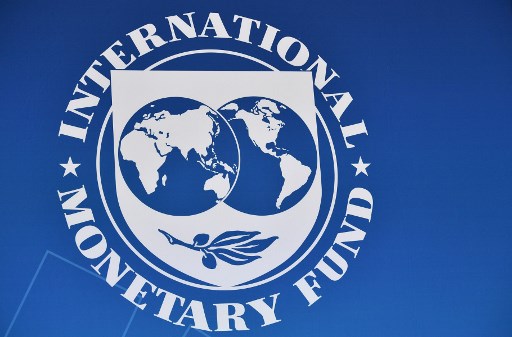
403
Sorry!!
Error! We're sorry, but the page you were looking for doesn't exist.
International Monetary Fund approves disbursement of USD820M to Egypt
(MENAFN) On Monday, the International Monetary Fund (IMF) approved a disbursement of 820 million U.S. dollars to Egypt as part of an 8 billion-dollar loan program aimed at stabilizing the country's economy. This latest tranche reflects the IMF’s assessment that Egypt's macroeconomic conditions have shown improvement since the program's earlier reviews conducted in March. According to the IMF, inflationary pressures in Egypt are easing, foreign exchange shortages have been resolved, and fiscal targets set under the loan program have been achieved.
Despite these positive developments, the IMF cautioned that Egypt continues to face a challenging regional environment and significant domestic policy hurdles. The ongoing conflict between Gaza and Israel, coupled with tensions in the Red Sea, as well as internal economic and structural challenges, underscore the need for sustained commitment to the program’s objectives. The IMF's report emphasized that the situation requires continued implementation of the agreed-upon economic reforms and policy measures.
The IMF’s recommendations include ongoing fiscal consolidation, enhanced efforts to increase revenue, and accelerated structural reforms designed to stimulate private sector growth. These steps are intended to help Egypt navigate the current economic difficulties and build resilience against external shocks. The disbursement of funds is part of a broader 8 billion-dollar loan agreement finalized in March, aimed at mitigating the impact of regional tensions on Egypt’s macroeconomic stability.
The loan arrangement, which commenced in December 2022, is expected to extend until September 2026. The U.S. dollar shortage in Egypt over the past two years has led to a sharp devaluation of the local currency and the development of a parallel exchange market, plunging the country into a severe economic crisis. This crisis has been exacerbated by the Gaza conflict that began last October, which has adversely affected Egypt’s tourism sector and significantly reduced its revenue from the Suez Canal.
Despite these positive developments, the IMF cautioned that Egypt continues to face a challenging regional environment and significant domestic policy hurdles. The ongoing conflict between Gaza and Israel, coupled with tensions in the Red Sea, as well as internal economic and structural challenges, underscore the need for sustained commitment to the program’s objectives. The IMF's report emphasized that the situation requires continued implementation of the agreed-upon economic reforms and policy measures.
The IMF’s recommendations include ongoing fiscal consolidation, enhanced efforts to increase revenue, and accelerated structural reforms designed to stimulate private sector growth. These steps are intended to help Egypt navigate the current economic difficulties and build resilience against external shocks. The disbursement of funds is part of a broader 8 billion-dollar loan agreement finalized in March, aimed at mitigating the impact of regional tensions on Egypt’s macroeconomic stability.
The loan arrangement, which commenced in December 2022, is expected to extend until September 2026. The U.S. dollar shortage in Egypt over the past two years has led to a sharp devaluation of the local currency and the development of a parallel exchange market, plunging the country into a severe economic crisis. This crisis has been exacerbated by the Gaza conflict that began last October, which has adversely affected Egypt’s tourism sector and significantly reduced its revenue from the Suez Canal.

Legal Disclaimer:
MENAFN provides the
information “as is” without warranty of any kind. We do not accept
any responsibility or liability for the accuracy, content, images,
videos, licenses, completeness, legality, or reliability of the information
contained in this article. If you have any complaints or copyright
issues related to this article, kindly contact the provider above.


















Comments
No comment